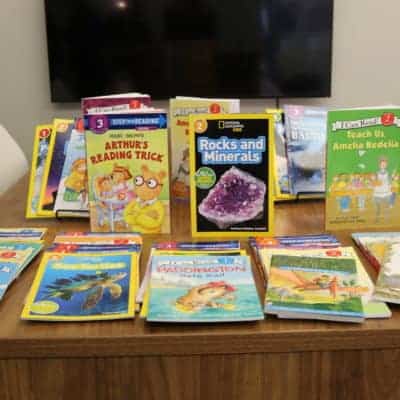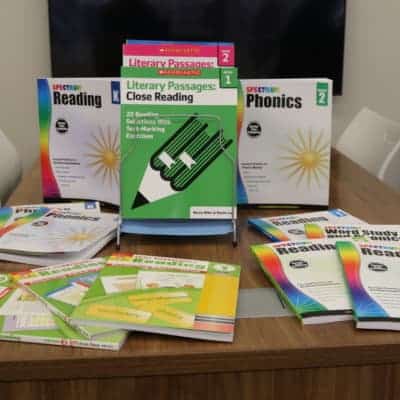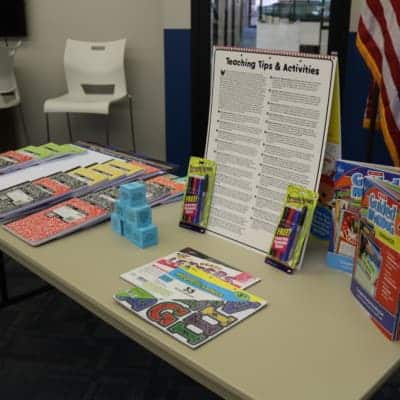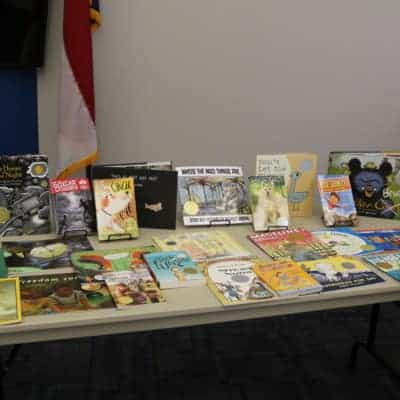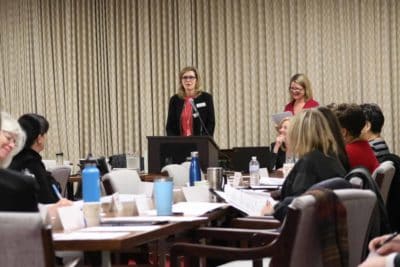As a principal in rural Perquimans County, Jason Griffin said teacher turnover not only affects school staffing, but also classroom materials.
Griffin, the state’s 2017 Principal of the Year, is planning to use the $200 that will be given to each K-3 reading teacher in the state to restock book shelves that were left empty when teachers left his school, Hertford Grammar School. The funding was announced by Superintendent of Public Instruction Mark Johnson on Thursday.
“We’ve been slowly trying to replenish those classroom libraries and this is going to help us move in that direction,” Griffin said. “So we’re excited.”
The Department of Public Instruction is distributing a total of $4.8 million from funds allocated by the state in 2016 as part of its Read to Achieve initiative for “literacy support” in early grades. Johnson, in his time as superintendent, has emphasized the importance of reading proficiency and early literacy education.
“As we have discussed multiple times, reading on grade level by the third grade is a very important milestone for all students,” Johnson said in Thursday’s press conference. “If they don’t read on grade level by third grade, they will always be working in school to catch up.”
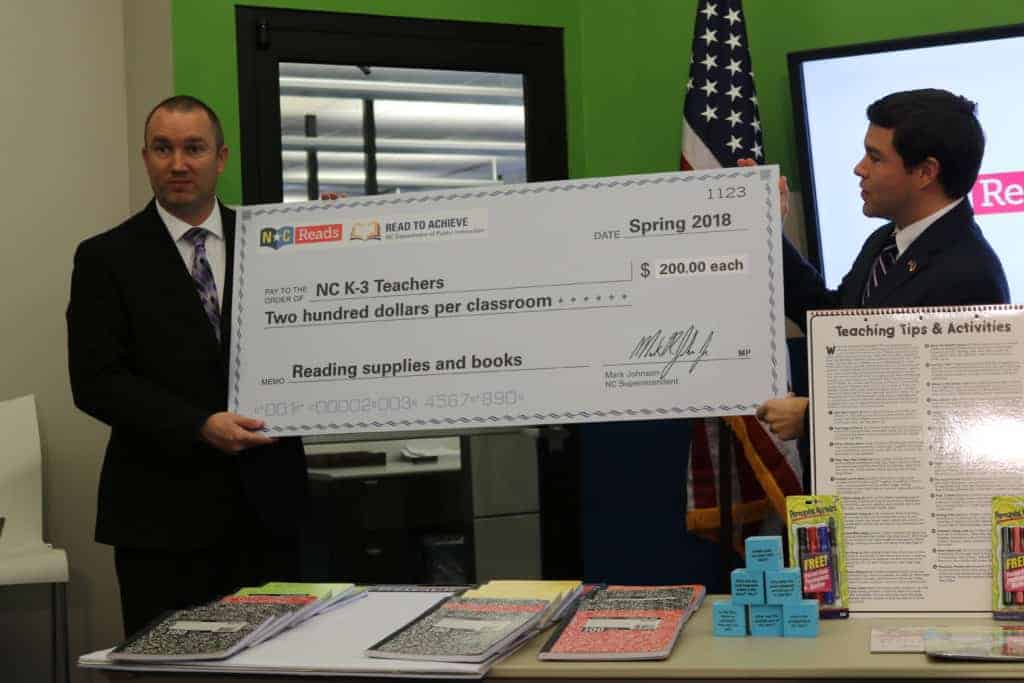
Johnson said there are still many students who are not meeting grade-level proficiency. In October 2016, about 42 percent of students did not demonstrate reading proficiency on exams at the end of third grade, according to DPI data.
“Early grade teachers in North Carolina are working extremely hard to make sure our students reach that important milestone,” he said. “Unfortunately, even with all the hard work, many of our students are not reading where they need to be by the third grade. As education leaders, and as parents, it is time for us to step up and do our part.”
DPI spokesperson Drew Elliot said the funds were allotted by the state last year for this fiscal year. The $200 for each teacher, he said, will be available either Thursday or Friday to every local school district and charter school in the state. Johnson said there are around $66 million in Read to Achieve funds aimed at K-3 literacy available for this school year.
Rep. Craig Horn, R-Union, who was present at the press conference, emphasized the importance of the third grade reading level mark as an indicator for a student’s life outcomes. National research has found students who do not reach proficiency by third grade are four times more likely to not graduate from high school on time. The same 2012 study by The Annie E. Casey Foundation also found poverty heavily affects high school graduation rates.
“The data is crystal clear about the importance of reading by the end of third grade,” Horn said. “Without that opportunity available for every child, the chances of that child’s success in life are inextricably diminished.”
Horn said the General Assembly backs Johnson and DPI’s efforts.
“This program goes right to the heart of that,” he said. “You will find strong support in the legislature, strong support across North Carolina.”
Rep. Jason Saine, R-Lincoln, said ensuring kids have basic skills at a young age is important for their lives and for the state as a whole.
“When we think about the things that we’re doing in North Carolina, as we recruit businesses, as companies come to our state, as they look to us to be competitive, we have to have well-educated students,” Saine said. “We want them to have every opportunity.”
The following were examples of what kinds of materials $200 could purchase for a classroom displayed at the press conference. Elliot said all of the displays will be donated to schools.
Johnson said he suggests teachers give each student a book to take home for the summer. Other options that fall under “literacy support,” according to a DPI press release, include online books or instructional materials and any resources or equipment that help teachers reach students as a whole class, in small groups, or individually. He said he wants teachers to be involved in decisions around how the money is used.
“This is a conversation that (superintendents) can start having with their principals, starting right now, as how they decide it will best fit teachers in the classroom” Johnson said. “And I do encourage them to let teachers be a part of that conversation too.”



